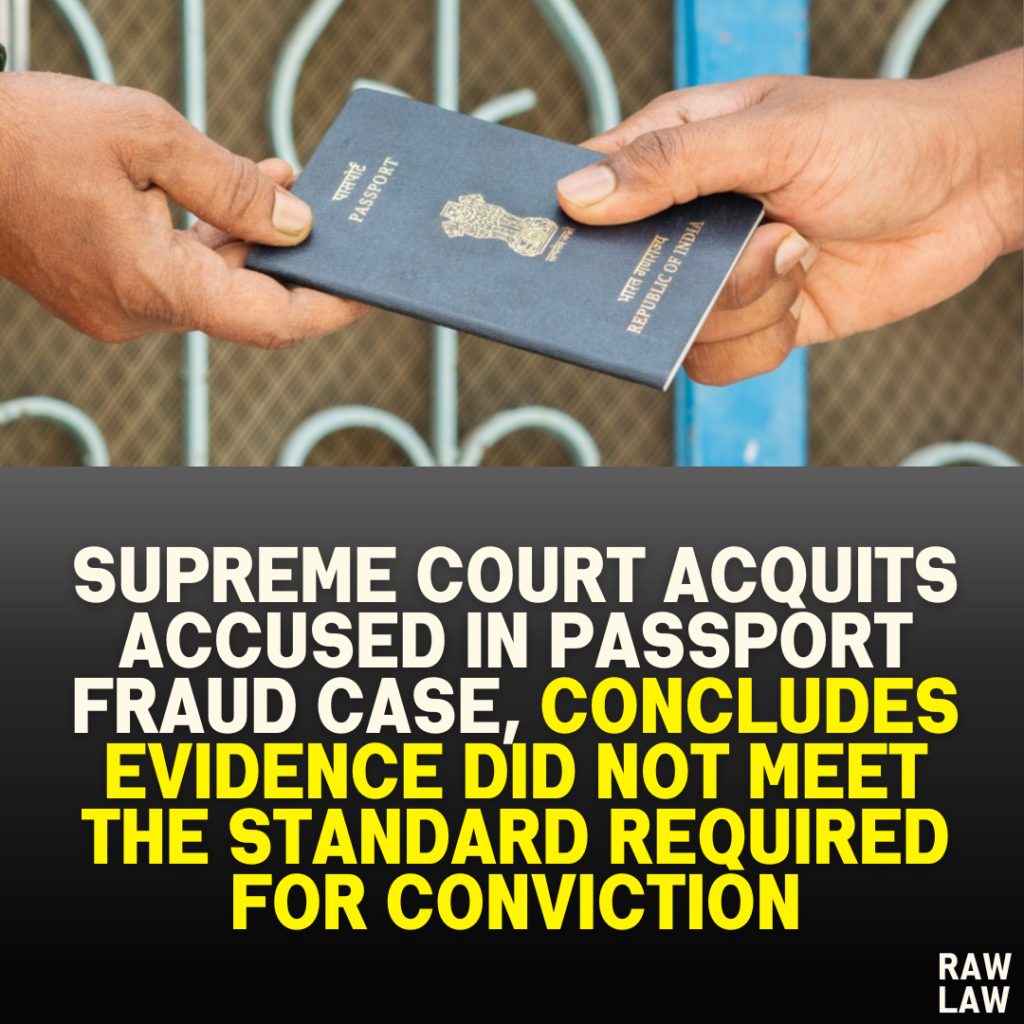Court’s Decision:
The appeal was allowed, and the appellant was acquitted of all charges. The Supreme Court set aside the judgments of the Trial Court and the High Court.
Facts:
The appellant was charged with facilitating the issuance of a second passport to another accused, who was already in possession of a passport. It was alleged that the second passport application was processed through the appellant, who later demanded Rs. 5,000 for its delivery. Upon refusal of payment, the appellant returned the passport to the Passport Office. The other accused involved in the conspiracy were acquitted at trial.
Issues:
- Whether the appellant knowingly facilitated the issuance of a second passport despite the accused already holding one.
- Whether the conviction of the appellant was sustainable, given the acquittal of other accused with similar charges.
Petitioner’s Arguments:
The petitioner argued that the appellant’s conviction could not be upheld when other similarly placed accused were acquitted. It was contended that the evidence relied upon by the lower courts, including the testimony of witnesses and expert reports, was not sufficient to establish the appellant’s guilt beyond a reasonable doubt.
Respondent’s Arguments:
The prosecution argued that both the Trial Court and the High Court had properly evaluated the evidence and convicted the appellant based on the testimonies of key witnesses and expert evidence. The respondent urged that there was no need for interference in the concurrent findings.
Analysis of the Law:
The Court noted that the burden was on the prosecution to prove that the appellant had knowingly furnished false information or suppressed material information for the purpose of obtaining a second passport. The law under Section 12(2) of the Passports Act requires the prosecution to demonstrate clear intent on the part of the appellant.
Precedent Analysis:
The Court referred to the principle of parity from a recent ruling, stating that identical evidence against multiple accused cannot result in one being convicted and another acquitted. This principle was critical in evaluating the appellant’s conviction, as similar evidence was used to acquit others.
Court’s Reasoning:
The Court found that the prosecution had failed to provide conclusive evidence proving that the appellant was aware of the prior passport or knowingly facilitated the issuance of the second passport. The evidence from key witnesses was found to be unreliable, and the expert’s testimony on handwriting did not definitively connect the appellant to the crime. The Court concluded that the evidence presented did not meet the standard required for a conviction.
Conclusion:
The Court set aside the conviction and sentence of the appellant due to insufficient evidence. The acquittal of similarly placed accused further undermined the prosecution’s case against the appellant.
Implications:
This judgment reiterates the importance of parity in criminal cases, emphasizing that identical or similar evidence must lead to consistent outcomes for all accused. It also underscores the necessity for reliable and corroborated evidence to secure convictions in cases involving serious offenses.
